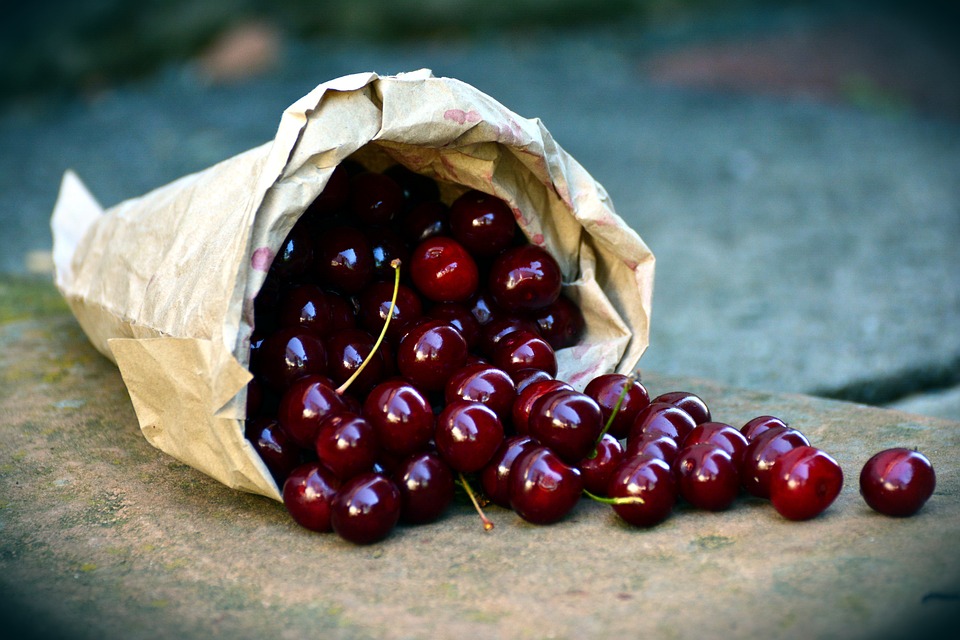The Importance of Food for Gastric bypass Patients: A Comprehensive Guide
Imagine undergoing a life-changing surgical procedure to improve your health and overall well-being. Gastric bypass surgery, a procedure that alters the digestive system, has become increasingly popular in recent years as a solution to obesity and related health issues. While the surgery itself is a crucial step towards a healthier future, the food choices and eating habits that follow are equally vital in ensuring success. In this article, we will explore the significance of food for gastric bypass patients, providing helpful tips, advice, and recommendations along the way.
Understanding the Gastric Bypass Procedure
Before diving into the specifics of post-surgery nutrition, it is essential to comprehend the gastric bypass procedure itself. During the surgery, the stomach is divided into two sections, creating a small pouch at the top. The small intestine is then rerouted to connect directly to this new pouch, bypassing a large portion of the stomach and the upper part of the small intestine. This alteration restricts the amount of food one can consume and reduces the absorption of calories and nutrients. Consequently, the patient experiences weight loss and improved health.
The Transition to a New Diet
After undergoing gastric bypass surgery, patients must make significant changes to their dietary habits. The transition to a new diet can be challenging, but with the right guidance and support, it becomes an empowering journey towards long-term health. The key is to focus on nutrient-dense foods that provide essential vitamins and minerals while minimizing caloric intake. Let us explore some crucial aspects of a post-gastric bypass diet.
Protein: The Building Block of Recovery
Protein plays a vital role in the healing process post-surgery. It aids in tissue repair and promotes a sense of fullness, preventing excessive hunger and overeating. After gastric bypass surgery, protein should be the primary focus of every meal. Lean meats such as chicken, turkey, and fish are excellent protein sources. For vegetarian or vegan patients, tofu, tempeh, legumes, and low-fat dairy products can provide the necessary protein intake. Additionally, protein supplements may be recommended to ensure adequate nourishment.
Hydration: Sip, Sip, Sip
Staying hydrated is crucial for everyone, but even more so for gastric bypass patients. Since the surgery reduces the capacity of the stomach, it is essential to sip fluids throughout the day to prevent dehydration. Water should always be the primary choice, but sugar-free beverages and herbal teas can also be consumed. Avoiding carbonated drinks and sugary beverages is essential to prevent discomfort and potential complications. Remember, small sips are the key to staying hydrated without overwhelming the digestive system.
Balancing Macronutrients: Carbohydrates and Fats
While protein takes center stage in a gastric bypass diet, it is essential to strike a balance with other macronutrients. Carbohydrates provide energy, and consuming a variety of whole grains, fruits, and vegetables is crucial for overall health. However, it is important to choose complex carbohydrates over simple sugars to avoid blood sugar spikes and promote steady energy levels. Healthy fats, such as those found in avocados, nuts, and olive oil, are also important in moderation for optimal nutrition.
Vitamins and Minerals: The Powerhouse of Health
Due to the reduced absorption of nutrients after gastric bypass surgery, vitamin and mineral supplementation is essential. bariatric-specific multivitamins are often recommended to ensure adequate levels of vitamins A, D, E, and K, as well as B vitamins and minerals like iron and calcium. Regular blood tests and consultations with a healthcare professional can help determine individual needs and adjust supplementation accordingly.
In conclusion, food plays a pivotal role in the success of gastric bypass surgery. By focusing on protein, staying hydrated, balancing macronutrients, and supplementing vitamins and minerals, patients can optimize their health and achieve long-term weight loss goals. Remember, this journey is not just about losing weight – it is about reclaiming your life and embracing a healthier future. With dedication, support, and a well-planned diet, gastric bypass patients can enjoy a fulfilling and vibrant life beyond the surgery.
Most Common Questions About Food For Gastric Bypass
1. What is gastric bypass surgery and how does it affect eating habits?
Gastric bypass surgery is a type of weight loss surgery that involves reducing the size of the stomach and rerouting the digestive system. This surgery aims to promote weight loss by limiting the amount of food one can consume and reducing calorie absorption. After gastric bypass surgery, patients experience changes in their eating habits due to the altered anatomy of their digestive system.
Important information:
1. Gastric bypass surgery involves reducing the size of the stomach and rerouting the digestive system.
2. The surgery limits the amount of food one can consume and reduces calorie absorption.
3. Patients experience changes in their eating habits after gastric bypass surgery.
2. What foods should be avoided after gastric bypass surgery?
After gastric bypass surgery, it is essential to avoid certain foods that can cause discomfort or lead to complications. These foods include carbonated beverages, high-sugar and high-fat foods, tough meats, fibrous fruits and vegetables, and alcohol.
Important information:
1. Carbonated beverages should be avoided after gastric bypass surgery.
2. High-sugar and high-fat foods should be eliminated from the diet.
3. Tough meats, fibrous fruits and vegetables, and alcohol should be avoided.
3. What should a post-gastric bypass diet consist of?
A post-gastric bypass diet should consist of small, frequent meals that are high in protein and low in fat and sugar. Foods such as lean meats, fish, eggs, dairy products, legumes, and cooked fruits and vegetables are generally well-tolerated. It is important to focus on nutrient-dense foods to meet the body’s nutritional needs while promoting weight loss.
Important information:
1. Post-gastric bypass diet should include small, frequent meals.
2. The diet should be high in protein and low in fat and sugar.
3. Lean meats, fish, eggs, dairy products, legumes, and cooked fruits and vegetables are generally well-tolerated.
4. How should portion sizes be managed after gastric bypass surgery?
Managing portion sizes is crucial after gastric bypass surgery to prevent overeating and promote weight loss. It is recommended to eat small, frequent meals and chew food thoroughly. Using smaller plates and utensils can help create the illusion of larger portions. It is important to listen to the body’s hunger and fullness cues and stop eating when satisfied.
Important information:
1. Portion sizes should be small and meals should be frequent.
2. Chewing food thoroughly is important after gastric bypass surgery.
3. Using smaller plates and utensils can help manage portion sizes effectively.
5. Are there any long-term dietary considerations after gastric bypass surgery?
Yes, there are long-term dietary considerations after gastric bypass surgery. Patients need to adhere to a lifelong commitment to healthy eating habits and regular exercise. It is important to consume a balanced diet that includes protein, vegetables, fruits, whole grains, and healthy fats. Regular monitoring of vitamin and mineral levels and potential supplementation may be necessary to prevent deficiencies.
Important information:
1. A lifelong commitment to healthy eating habits and regular exercise is necessary.
2. A balanced diet including protein, vegetables, fruits, whole grains, and healthy fats is important.
3. Regular monitoring of vitamin and mineral levels and potential supplementation may be required.
Wrong Interpretations Regarding Food For Gastric Bypass
1. Food for Gastric Bypass is always bland and tasteless.
There is a common misconception that food for gastric bypass patients is always bland and tasteless. While it is true that the diet following gastric bypass surgery usually starts with a liquid and pureed food stage, it gradually progresses to include a wider variety of foods. Over time, patients can enjoy a diverse range of flavors and textures, just like anyone else. It is important to note that the initial dietary restrictions are temporary and are intended to aid in the healing process and help patients adjust to their new eating habits.
2. Food for Gastric Bypass is only limited to a few types of food.
Another misconception is that food for gastric bypass patients is limited to only a few types of food. While it is true that certain foods should be avoided or consumed in moderation due to their potential to cause discomfort or complications, there is still a wide variety of options available. Patients are encouraged to focus on consuming lean proteins, fruits, vegetables, whole grains, and low-fat dairy products. By making smart choices and following the guidelines provided by their healthcare team, patients can enjoy a diverse and nutritious diet.
3. Food for Gastric Bypass lacks essential nutrients.
Some people believe that food for gastric bypass patients lacks essential nutrients. While it is true that the surgery alters the digestive system and can impact nutrient absorption, this does not mean that patients cannot meet their nutritional needs. In fact, following a balanced and varied diet, along with appropriate supplementation if necessary, can ensure that patients receive all the necessary nutrients. Regular monitoring by healthcare professionals and following their recommendations can help patients avoid nutritional deficiencies and maintain good health.
4. Food for Gastric Bypass is always expensive.
Contrary to popular belief, food for gastric bypass patients does not have to be excessively expensive. While there may be some initial costs associated with stocking up on certain staples and investing in appropriate kitchen utensils, the long-term cost of the diet can be comparable to or even lower than a regular diet. By focusing on whole foods, avoiding processed and convenience foods, and making smart choices, patients can manage their food expenses effectively. Additionally, meal planning and preparing meals at home can also help save money.
5. Food for Gastric Bypass is the same for everyone.
A common misconception is that the food for gastric bypass patients is the same for everyone. In reality, the specific dietary recommendations can vary depending on individual factors such as weight, age, sex, medical history, and personal preferences. Each patient’s dietary plan is tailored to their specific needs and goals, taking into account their unique circumstances. It is crucial for patients to work closely with their healthcare team, including registered dietitians or nutritionists, to develop a personalized meal plan that meets their nutritional requirements and supports their overall health and well-being.
Food For Gastric Bypass
#undergoing #gastric #bypass #surgery #important #follow #specific #diet #plan #ensure #proper #healing #weight #loss #recommended #foods #individuals #undergone #gastric #bypass

